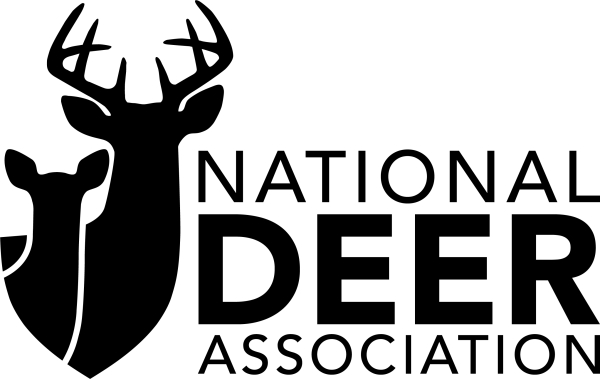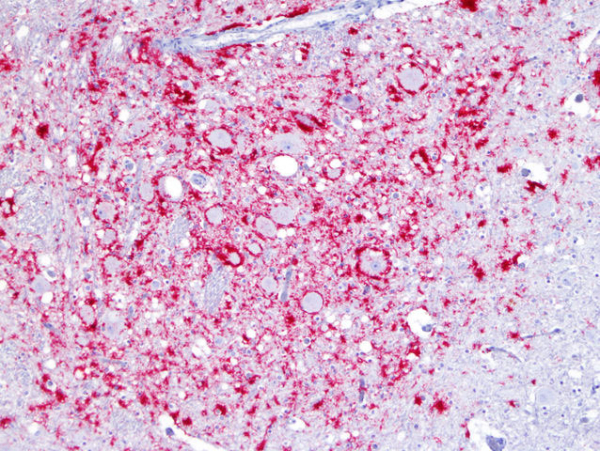Dead mule deer dumped in Eaton County; DNR officials remind hunters of importation laws, CWD implications
Last week, the Michigan Department of Natural Resources responded to calls of a male mule deer lying on the side of the road in a rural area of Eaton County. The antlers had been removed and the animal was field-dressed, though DNR staff determined, after close X-ray examination, the animal was killed by a vehicle. There were no bullet holes or lead fragments, but there were numerous broken ribs and other trauma indicative of a deer/vehicle collision. Since there are no registered mule deer in Michigan’s privately owned cervid facilities, it is believed that this carcass was brought into Michigan from somewhere out west.
Mule deer are located in western North America. The most noticeable differences between white-tailed and mule deer are the size of their ears, the color of their tails and the configuration of their antlers. The mule deer’s tail is black-tipped and their antlers “fork” as they grow, rather than branch from a single main beam, as is the case with white-tails.
“The fact that this was called into the DNR indicates that our chronic wasting disease (CWD) communications are being received by some, but there are clearly more individuals to reach,” said Chad Stewart, DNR deer specialist. “We received more than one call that this deer didn’t seem to be a white-tail and that we needed to have it picked up and tested. We would like to thank everyone who called in.”
Stewart said the good news is that the deer was tested for CWD and the disease was not detected. However, the discovery of the mule deer highlights important restrictions that are in place to keep Michigan’s native deer population safe from disease.
“Michiganders must understand that a situation like this is one of the ways CWD may have entered Michigan,” Stewart said. “We must all take responsibility for keeping our deer herd safe and following the laws on importation of harvested animals from states with CWD.”
Just this weekend, DNR Law Enforcement stopped a number of vehicles coming into Michigan from Wisconsin and Illinois bringing in illegal parts from deer. Conservation officers are actively working these cases and taking enforcement actions when violations are present.
The DNR announced in late May 2015 that CWD had been found for the first time in a free-ranging white-tail deer in Ingham County. Since that time, two additional deer also have tested positive. CWD is a neurological (brain and nervous system) disease found in deer, elk and moose.
There is currently no treatment for CWD; it is fatal in all cases.
Current scientific understanding suggests CWD may be transmitted both directly through animal-to-animal contact, as well as indirectly through a contaminated environment. Previous studies have shown that CWD prions exist in the saliva, urine, blood and feces of infected cervids. Additionally, a study from the University of Wisconsin suggests that the CWD prion can remain indefinitely in certain types of soil, and binding to soil dramatically increases the infectiousness of CWD prions.
To date, there is no evidence that chronic wasting disease presents any risk to non-cervids, including humans, either through contact with an infected animal or from handling venison. However, as a precaution, the U.S. Centers for Disease Control and the World Health Organization recommend that infected animals not be consumed as food by either humans or domestic animals.
Many western states do have chronic wasting disease, which is why the Michigan DNR has strict importation laws.
Harvested free-ranging deer, elk or moose from Colorado, Illinois, Iowa, Kansas, Maryland, Minnesota, Missouri, Nebraska, New Mexico, New York, North Dakota, Pennsylvania, South Dakota, Texas, Utah, Virginia, West Virginia, Wisconsin, Wyoming, Alberta or Saskatchewan have importation restrictions.
These states and provinces have detected CWD in free-ranging animals; therefore, only the following parts of deer, elk or moose carcasses may be brought into Michigan: deboned meat, antlers, antlers attached to a skull cap cleaned of all brain and muscle tissue, hides, upper canine teeth or a finished taxidermy mount.
If you are notified by another state or province that a deer, elk or moose you brought into Michigan has tested positive for CWD, you must contact the DNR Wildlife Disease Lab within two business days (8 a.m. to 5 p.m.) at 517-336-5030 and provide details. In addition, the U.S. Department of Agriculture may have regulations on importation from Canada. Call 301-851-3300 for details.
Michigan citizens should call the DNR Report All Poaching hotline (800-292-7800) with any information related to this mule deer incident or to report any other importation violations.




